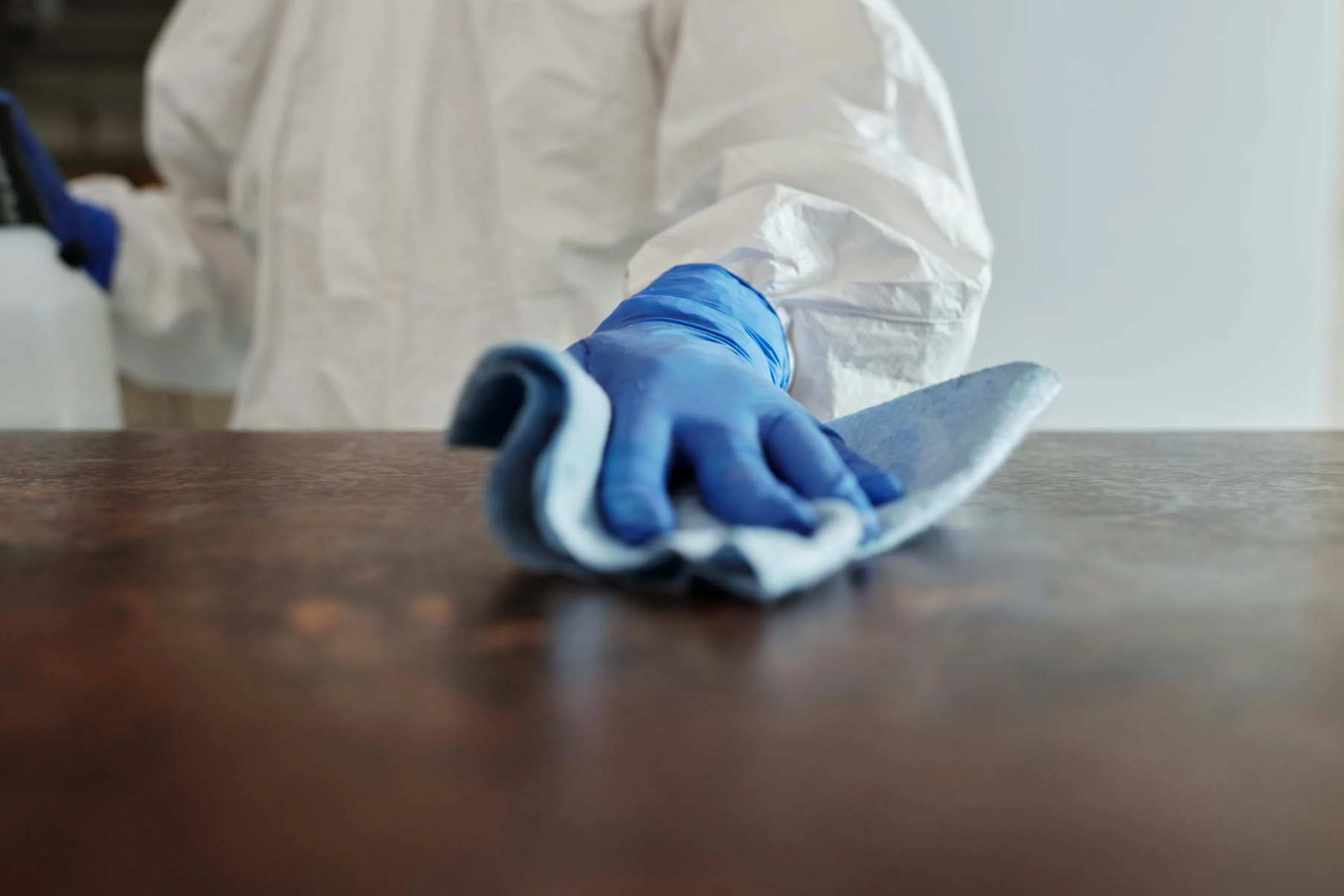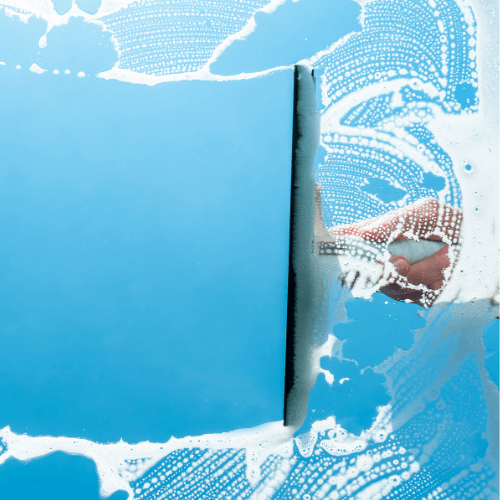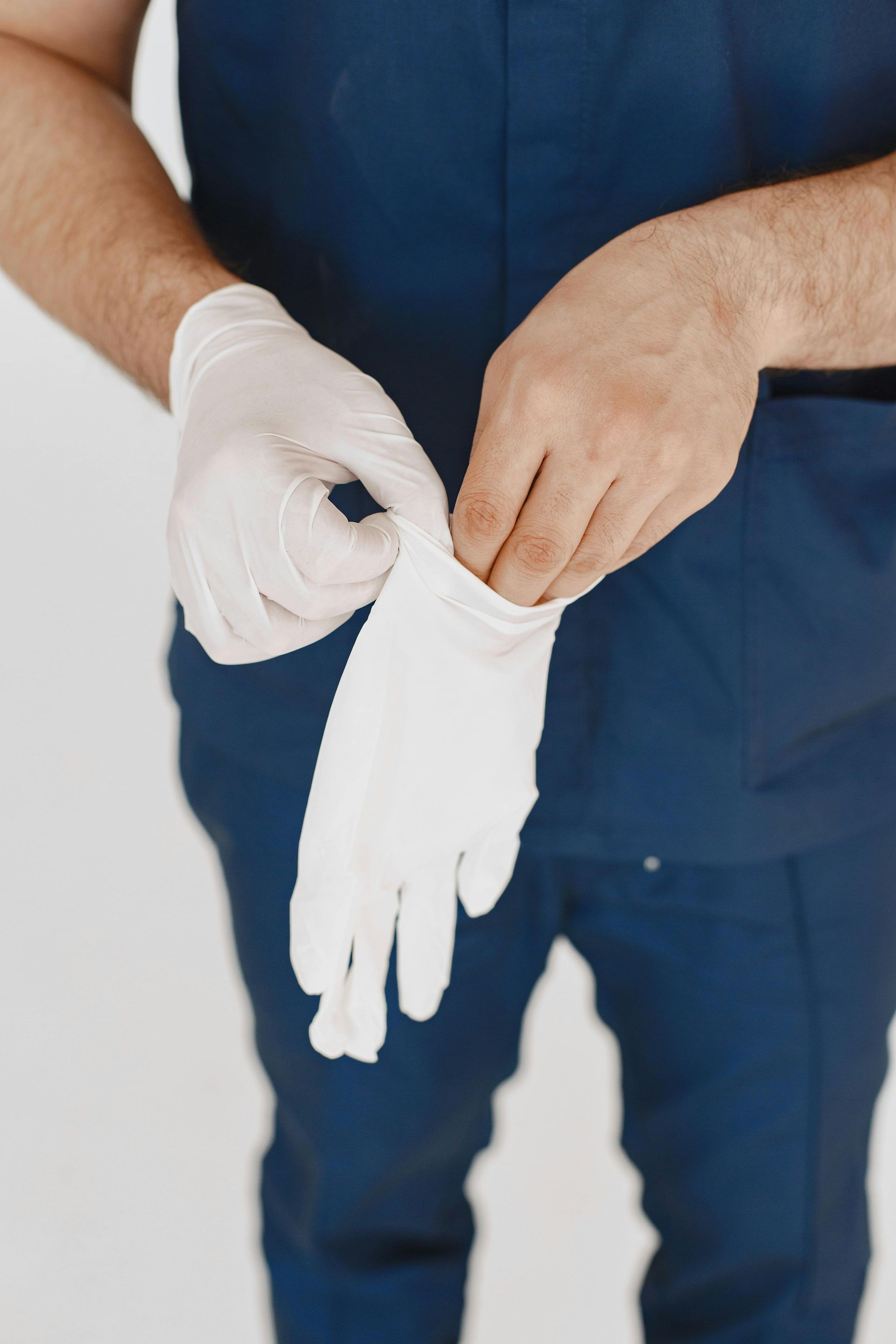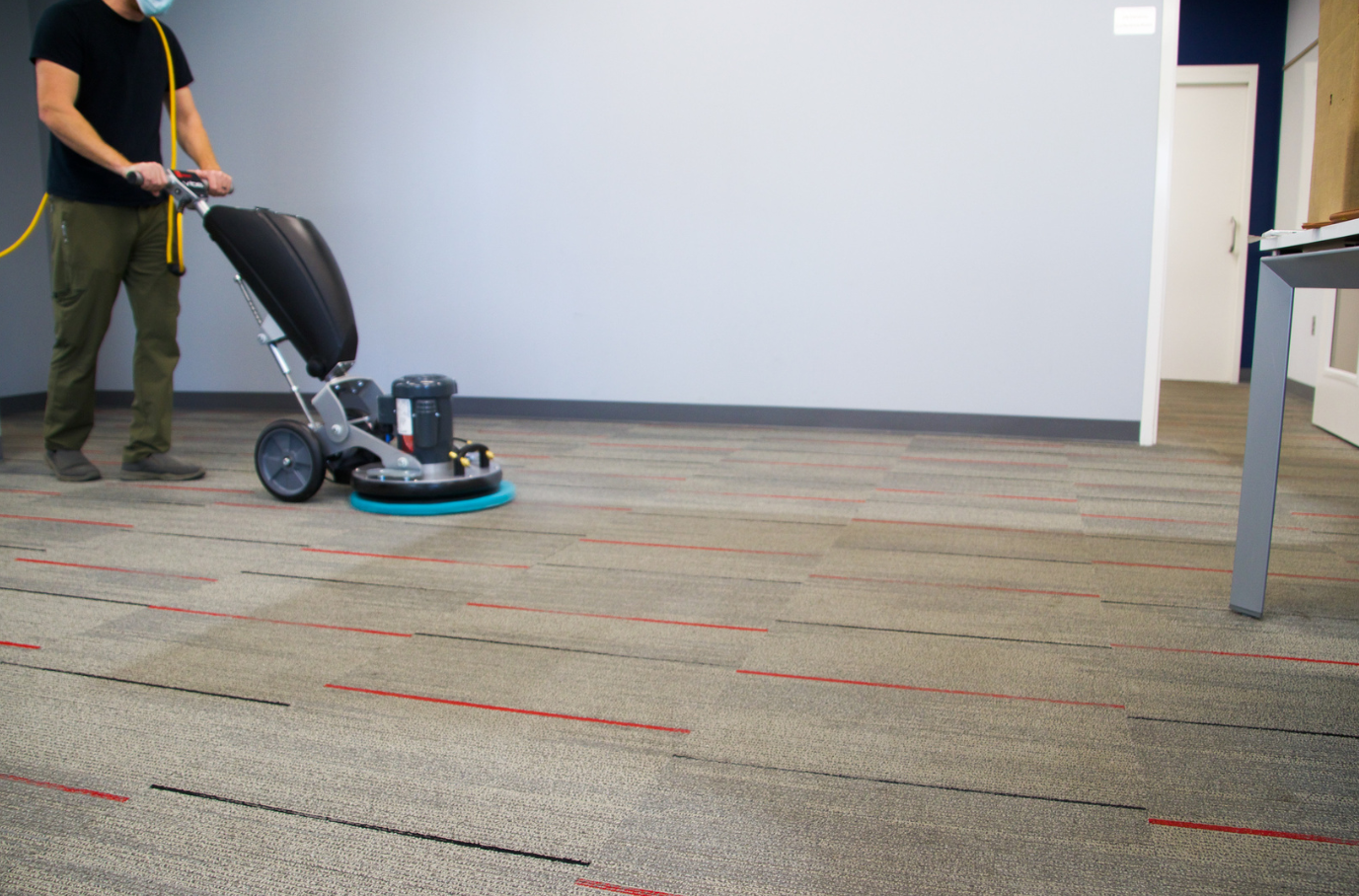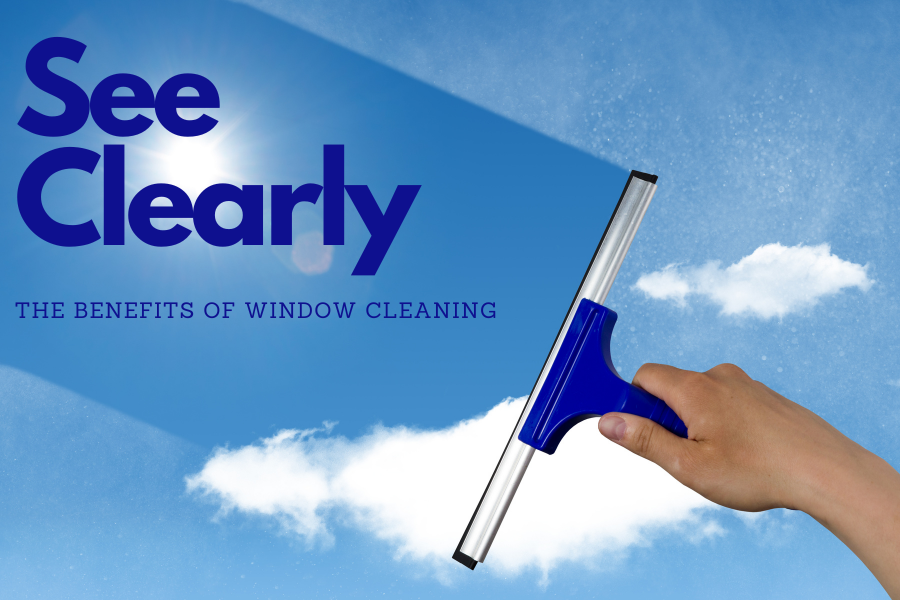Natural Cleaners and What They Do
With the word ‘green’ getting used more and more when it comes to making everyday decisions and lifestyle choices, why not apply it to the way you clean? If green energy is about saving the air, earth, and water you share with everyone, then green cleaning is about saving yourself. It’s a more attainable and manageable effort than saving the world if you ask me. The best way to be ‘green’ in your cleaning? Using ‘natural’ products instead of chemicals.
Now you might already use a few of these, and some you might have only heard your grandparents talk about, but here are a few options: white vinegar, castile soap, natural salt, baking soda, borax, lemons, and essential oils. (1) And just what makes them ‘natural’? “The FDA refers to natural ingredients as ingredients extracted directly from plants or animal products as opposed to being produced synthetically.” If there are any chemical changes occurring, then they must be the type that can naturally occur with those items, or else they are no longer considered ‘natural’. (2)
White vinegar is typically made through the natural process of fermentation, with grain. It is then diluted with water. There is a higher percent of water in the white vinegars used in cooking, and a lower percent of water for those used in cleaning. White vinegar can be used on numerous household surfaces and not just in the kitchen. After doing the dishes and cleaning the countertops, you can move on to the rest of the house. After mopping the floors, and wiping down the windows and mirrors, you can even carry on to the bathroom. There you can scrub your showers, bathtubs and toilets, all with one product. And to top it off, if you managed to stain your clothes at any point during your cleaning, white vinegar can help remove those too. There are a few surfaces that are not compatible with this natural cleaner, such as certain rock countertops and wooden floors, but other than those few exceptions it’s a pretty effective cleaner. (3)
Castile soap, in both liquid and solid bar form, is only made with vegetable oils. Some of the biggest brands have coconut, olive and other varieties of oils including select nuts. Besides being a completely vegan product, castile soap is a real “grease-grabber”, making it effective at cleaning all your greasy needs such as oven hoods, pots and pans, and any other slippery hazards you may have. In addition to being used as laundry soap, it also cleans counters, floors, sinks, and most bathroom surfaces including yourself. Yes, you read that right, you can shower with castile soap. (4)
Natural salt is mined from the earth and is a gentle scrubbing agent in cleaning. Salt can also be mixed into other ingredients, such as vinegar, to boost both the cleaning and/or the freshening ability of said ingredients. So, for a basic scrub, mix lots of salt, with baking soda, dish soap, vegetable oil, etc. to form a paste (do your research to find out what exactly you need to mix with salt to get your desired results). Once you have your mixture(s), you are ready to clean so many different things. A little salt and scrub will work wonders on cleaning greasy pots and pans and stained cups. And if you’re old fashioned and like to hand wash your dishes occasionally, (or you have a lazy machine and actually have to rinse your dishes off a bit before putting them in the dishwasher like I do) a salt mixture down the drain will help prevent any grease buildup. (5)
Somebody forgot to use a coaster on your wooden tables…again? Have no fear. Remove those irritating water rings left behind with, you guessed it, a salt mixture! The fridge could use a breather? Use a salt scrub to clean the inside of your fridge as it both cleans and freshens. Your brass or copper pots, or glass coffee pot looking a tad dull or milky? Use a salt scrub to clean and prep for a good buffering later to get that shine back. On the laundry side of things, a salt scrub can help cure the stickiness that forms on the bottom of your clothes iron. A salt mixture can also help get out a number of different stains such as: perspiration, mildew, rust, blood and even the dreaded wine stain. (5)
Baking soda (or sodium bicarbonate) is a mineral, and like salt, can be mined from the earth naturally. Many people mine it and simply sell it in its natural state. But some go even further and refine it afterwards, with chemicals. If it isn’t refined, then baking soda makes an excellent ‘natural’ abrasive. Besides being mixed with salt like mentioned farther above, baking soda can be used to remove rust and tarnish from old metal and silverware. Baking soda is also effective enough to clean countertops, tiles and toilets, but still gentle enough to be used on your teeth in toothpastes and mouth washes. (6)
Borax (or sodium borate) is also a mineral, and again can be mined from the earth just like salt and baking soda. It can be used as both a household cleaner, as it can be used on multiple things, and a laundry booster. (7) What makes borax such a good cleaner, has to be its water softening properties. When borax is added to water, the calcium and magnesium ions are removed from the hard water and are replaced with sodium ions. The result is, in non-scientific terms, more effective cleaning; your detergents are better able to remove the dirt and oils from both dishes and clothing and your soaps feel even slicker. Therefore, you are able to use less detergent and soap to finish up your cleaning. (8) Some other uses for borax include being a fungicide and a bug killer. When a home or building needs a deep cleaning, being able to get rid of and prevent future mold and bug outbreaks is both helpful and appreciated. (7)
The most ‘natural’ cleaner of all can be found right in your own fridge; the common lemon. With a little salt, a lemon can be used to remove tough food scum off of dishes. With lemon juice, not only can you erase rust spots on knives and polish copper, you can also eliminate obnoxious stains and smells from all your plastic containers, wooden cutting boards, and butcher block countertops. (9) Essential oils are a ‘natural scent. The process of distillation using steam or water captures a plant’s taste and scent A more mechanical option is through cold pressing; essentially, pressing the plants really hard through a strainer. Both essential oils and our dear friend the lemon can be added to home brews to make a ‘natural’ air freshener or a scented ‘natural’ cleaner.
To wrap up, there are probably a few more DIY ‘natural’ cleaning solutions out there than this article covered. Before doing any of these ‘natural’ options, listed here or otherwise, a bit of research is required. Many of these ‘natural’ cleaners do not come with detailed instructions like their chemical cousins. The options discussed here all have their ‘do’s and don’ts’ you need to know in order to avoid causing irreparable damage to either your things, yourself or both. If these options are not as effective for you as they are made out to be, don’t be afraid to go back to chemical cleaners. Though if you really are trying to be as ‘green’ as you can in life, hopefully you can find another ‘natural’ solution that serves you better. Do what works best for you.
Stay Sparklin’,
Gwen

